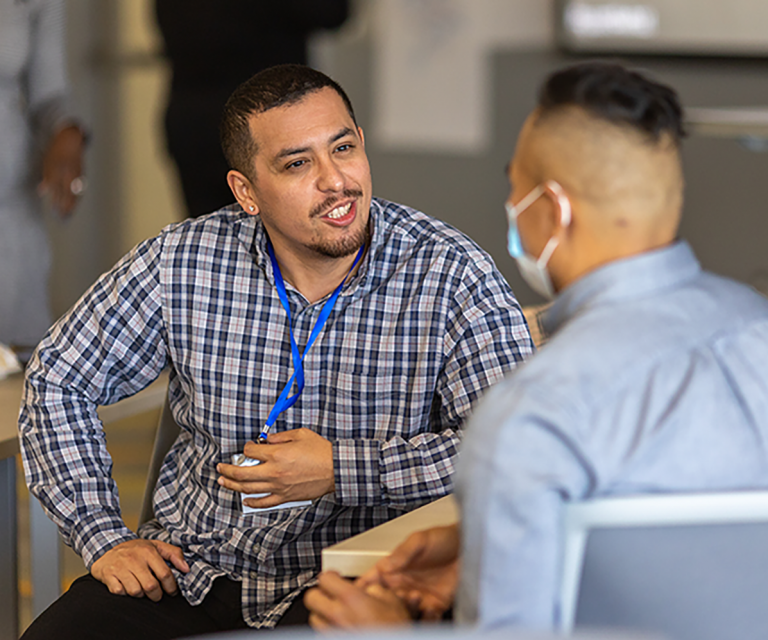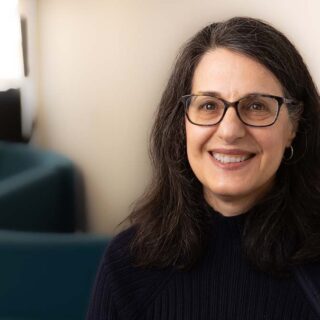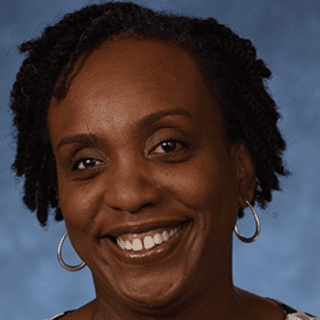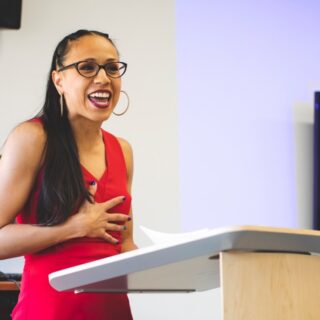
New $1.3 Million Grant to Develop Industry-Focused Job Pathways for Community Colleges
The University of Pittsburgh School of Education is launching a new project to bolster efforts to offer industry-recognized credentials and stackable credits at community colleges for underserved Black, Indigenous, and Latinx youth and adult learners, as well as individuals’ experiencing poverty.
The Training Future-Oriented Colleges to Enable Youth and Adults project is funded by a $1.3 million grant from the Bill & Melinda Gates Foundation. Along with project partners, Education Strategy Group (ESG) and Corporation for a Skilled Workforce (CSW), Pitt Education staff and faculty will work with five community colleges over the next year as they develop and/or scale pathways for worker-learners. A chief aim of this initiative is to advance promising practices that can eventually be applied at other two-year institutions nationwide. The community of practice component of the project launched in March 2023.
Following an exhaustive review, five institutions were selected for the project: Cuyahoga Community College in Cleveland, Ohio; Delgado Community College in New Orleans, Louisiana; Grand Rapids Community College in Grand Rapids, Michigan; Illinois Central College in East Peoria, Illinois; and San Diego Community College District in San Diego, California.
“The throughline on this project is pathways,” says Eboni Zamani-Gallaher, a principal investigator and a professor and the associate dean for equity, justice, and strategic partnerships at Pitt Education. “It’s about developing pathways to greater educational and economic mobility and, for community colleges, is about creating strategic pathways for better serving folks who have been most impacted and affected by opportunity gaps.”
Drawing on the Guided Pathways framework, the project seeks to develop “13th year” training programs for high school graduates that will provide workforce-oriented credentials of value. Additionally, the project aims to promote “stackable credentials” that will allow youth and adult learners to seamlessly transition into a four-year university should they choose to continue their education.
“The project is focused on how we increase professional qualifications to help members from underserved communities find gainful employment and secure promotions,” says Zamani-Gallaher. “How do we meet students’ needs and how do we meet industry and employer needs? We are trying to leverage and advance what is happening in the marketplace.”
Job quality, economic advancement, and career success are drivers of the project.
“It’s no secret that the country is in desperate need of skilled talent,” says Kysha Wright Frazier, president and CEO of CSW. “Businesses reporting shortages of labor have more than doubled over the last eight years, with a projected growing deficit of millions of workers just a few years ahead. This initiative is important because we’re bringing higher education institutions together to work through challenges and create solutions that support better economic outcomes for worker-learners, while helping fill the critical skill needs of local employers.”
“We’re excited about this partnership and see this as the start of a larger expansion, engaging with colleges across the country to address workforce shortages and economic opportunity more deeply, particularly for Workers of Color,” says Wright Frazier.
The alignment of industry and colleges will ensure that students are receiving training for in-demand jobs, says Brett Visger, senior director of ESG.
“By helping colleges better partner with employers, students will have greater opportunities to advance their careers. Content of programs will stack, increasing chances to further their education after their initial training program,” says Visger.
Zamani-Gallaher says the ultimate goal of the effort is to help community college students achieve better lives through their studies.
“The ‘to and through,’ and how community colleges are the centerpiece of training and development for an array of diverse learners to self-actualize and have improved quality of life, is what this work is about,” says Zamani-Gallaher.




